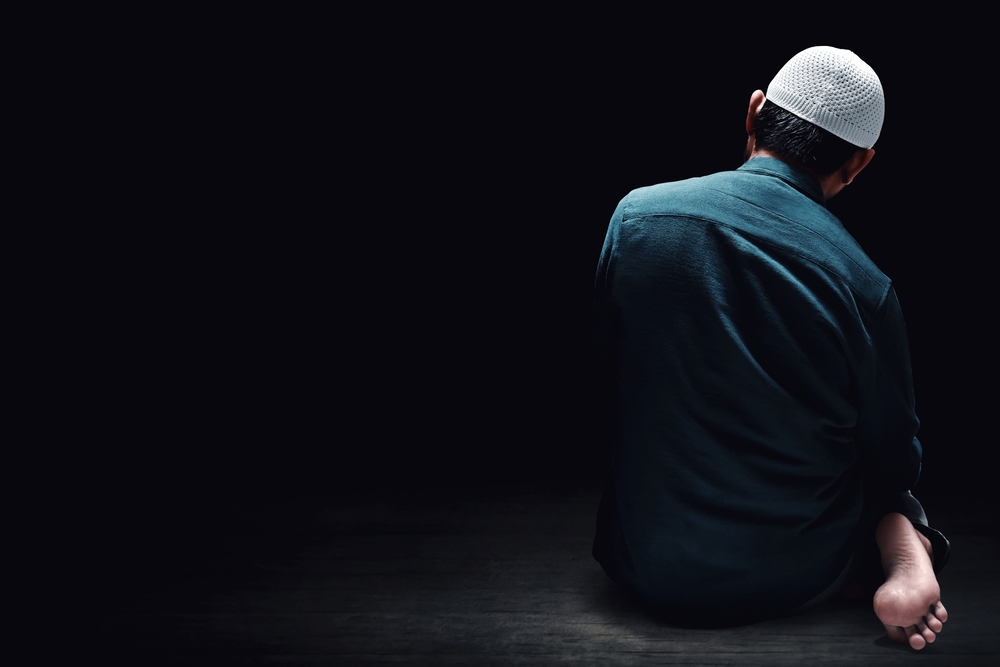Does Breathing in and Out Invalidate the Prayer?
Hanafi Fiqh
Answered by Ustadh Sufyan Qufi
Question
If I breathe in or out in prayer, does that break my prayer because letters were produced?
Answer
I pray this finds you in the best of states.
No breathing in or out during your prayer won’t break it. [Shurunbulali, Nur al-Idah]
This is because no letters are produced while merely breathing. [ibid]
Indeed merely breathing in or out doesn’t allow for a human being to utter a letter.
For a letter to be formed, the tongue, the lips, and other components of the mouth need to be used in a specific manner to allow you to produce a letter. [Zakarya al-Ansari, Sharh al-Muqadima al-Jazarya]
For example, in order for you to utter the letter “L” (“lam” in Arabic), the tip of your tongue has to be in contact with the region above your upper teeth. This cannot happen while merely breathing in or out because all these parts of the mouth are at rest when one is merely breathing.
For the prayer to be invalid, it is a condition that the letters are properly uttered. This entails a specific position of the different parts of the mouth which is absent when the mouth is at rest, simply breathing in and out. It is also a condition that the letters can be heard. If one of these two conditions is absent, then the prayer remains valid. When breathing in and out, both conditions are absent. Thus your prayer remains valid. [Tahtawi, Sharh ‘ala Maraqi al-Falah]
The Messenger of Allah (Blessings and Peace be upon Him) has said: “Wordly speech is not fitting for the prayer.” [Muslim]
Since breathing in and out cannot be considered to be speech, your prayer remains valid.
Doubts
If you have doubts about whether or not a letter has been uttered you have to assume the validity of the prayer and consider that nothing happened.
This is based on the following legal principle, “Certainty is not lifted by a doubt.” [Ibn Nujaym, al-Ashbah wa’l Nadha’ir; Majallat al-Ahkam al-‘Adiliyya]
which is in turn based on the following verse of the Quran:
“Most of them follow nothing but conjectures. Surely, conjectures are of no avail in the matter of truth at all.” [Quran, 10:36]
This means that if we are sure about something, such as the validity of our worship, which is the basic assumption for all human actions, we will keep assuming it is valid until we are confident it is not. Mere possibilities do not change this.
Please see: Key Principles Relating to Certainty, Doubt, and Baseless Misgivings (waswasa)
And Allah knows best.
[Ustadh] Sufyan Qufi
Checked and Approved by Shaykh Faraz Rabbani
Ustadh Sufyan Qufi is an advanced seeker of knowledge, originally from Algeria, who grew up in France. He began searching far and wide for answers to the fundamental questions of life and was disappointed at the answers he found.
Then he connected with various traditional teachers and gradually connected with SeekersGuidance. He embarked on his journey of learning through the various teachers at SeekersGuidance, including his mentor Shaykh Faraz Rabbani.
He studied numerous texts in Islamic Law, Theology, Hadith, and other areas with Shaykh Faraz Rabbani and other teachers, including Shaykh Abdurrahman al-Sha‘ar, Shaykh Ali Hani, and others.
He is an active instructor at SeekersGuidance and answers questions through the SeekersGuidance Answers Service.
